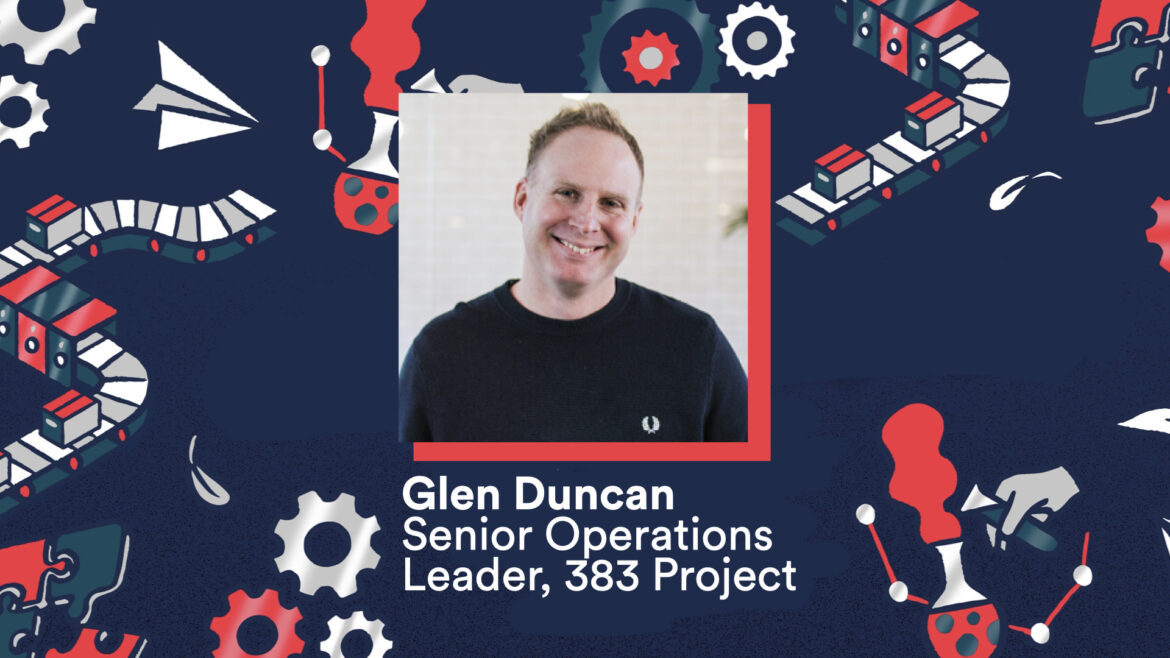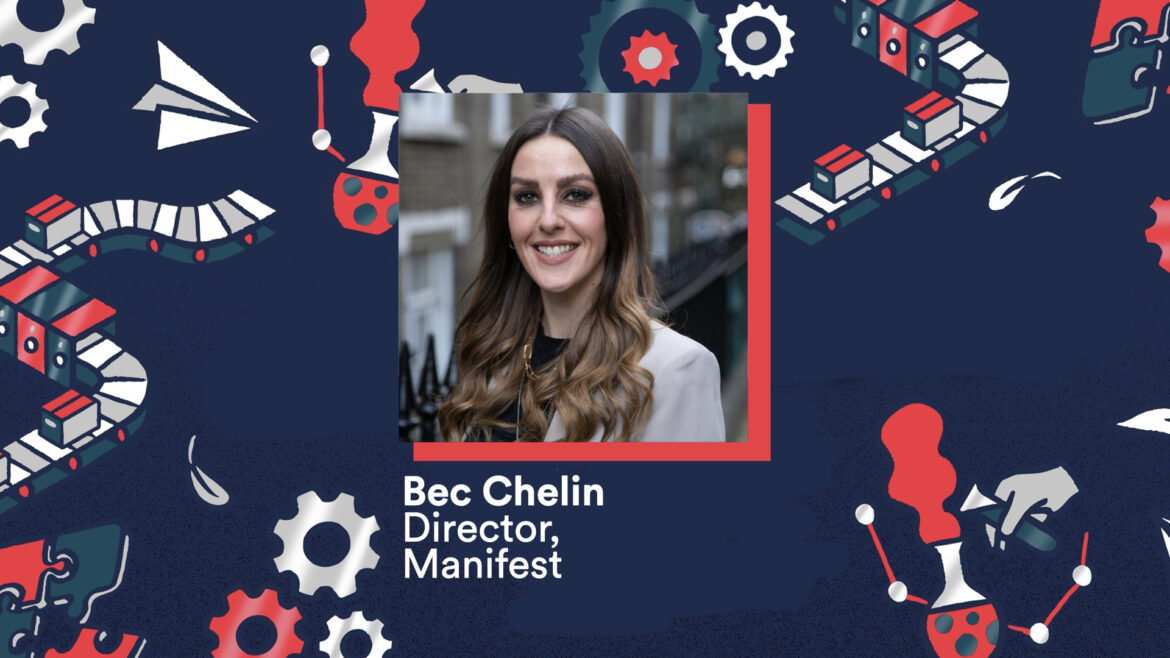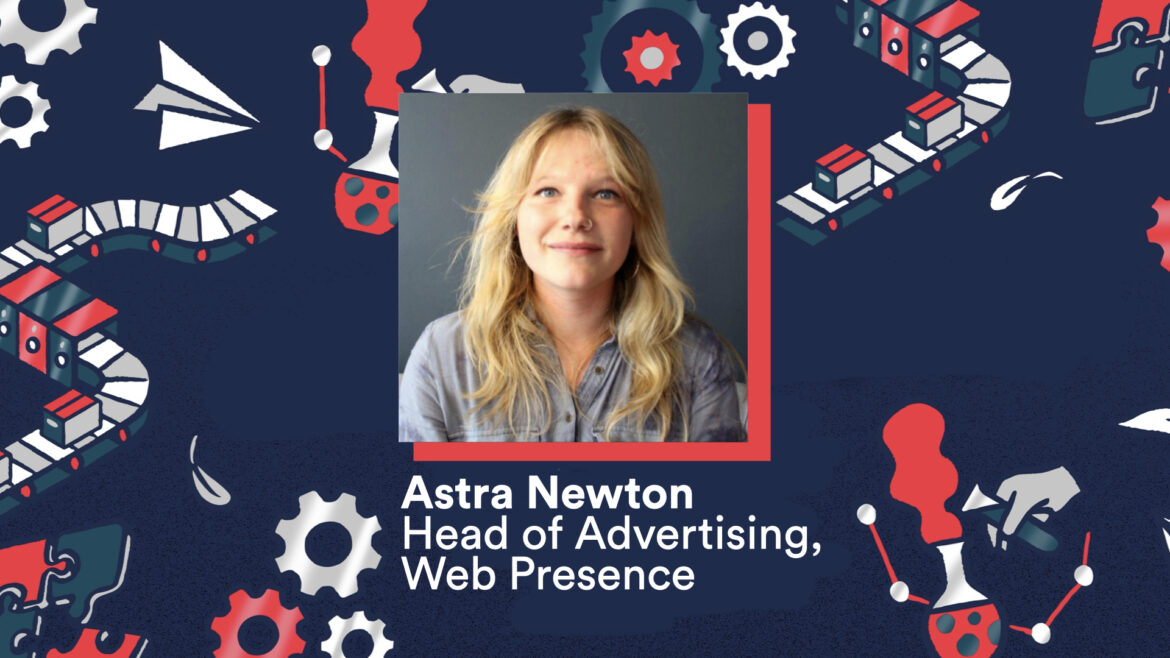Speakers
📢 Here are the current speakers we have for this event. We will also hear from you – the event is all about taking part.
How Can You Maintain Your Focus in Ops When
You’re Leading the Charge?

With operations often being a hidden role within an agency, it can be hard to keep your own personal development and goals in mind. Operations tends to be focused on keeping other people engaged – but what about those leading the charge?
Having worked in operations for several years, Glen Duncan could feel that he was losing focus and drive in his role.
“The only time you’ll ever really get any airtime is when things are going wrong,” says Glen, senior operations leader at 383 Project.
For Glen, the change came about when he had the opportunity to do an executive MBA.
“That was another big stimulant for taking a real look at the business and everything that we were doing,” he says.“I was able to take a lot of what I was learning and bring it into our planning sessions to stimulate different conversations.”
Just as an MBA did for Glen, it’s vital for operations people to keep their job fresh and their attention focused. He’s joining us at Clockwork Manchester to explain how to harness that focus through:
- Keeping your operations knowledge up to date through regular courses and personal development.
- Investing in knowledge outside of operations, such as through an MBA, where you can feed that expertise back into your role.
- Being clear on the value operations provides to your agency in a field where praise is often scarce.
Hear more from Glen on the qualities that make an operations lead unique and how to keep your own personal development in mind within an operations role.
“Why We Spent 18 Months Overhauling the
Entire Structure of Our Agency”

The saying goes: if it ain’t broke, don’t fix it.
However, while Bec Chelin’s agency, Manifest, was profitable and growing post-pandemic, the agency leadership team wanted to take things to the next level – and they realised that their traditional hierarchical structure wasn’t cutting it.
“Looking outside our niche for what best practice could look like was instrumental in building our model,” says Bec, Manifest’s director.
After doing some research and investigation into the art of the possible, the team came across the ‘elemental system’.
Inspired by Sir Ken Robinson’s book Find Your Element, the system organises team members vertically across seven ‘elements’ or disciplines, rather than hierarchically across seniority levels: insight, strategy, creative, production, client experience, project management, and operations.
“It’s tempting to build a team of really strong generalists,” says Bec. “While the work will be to a good standard, it won’t necessarily be the absolute best it could be, because you haven’t got an expert in every field for the element of work you’re producing.”
To implement this, Bec and her team spent 18 months overhauling the agency’s hierarchical structure and original processes from the ground up.
While it was a huge undertaking, it seems to have paid off. So far, it has maximised productivity, hugely improved the quality of work produced, elevated their client roster and helped to develop internal talent thanks to the agency’s ‘elements’.
Hear more from Bec about Manifest’s decision to overhaul the entire business structure, and how it has revitalised the agency.
“We Had to Overhaul Our Processes When
We Changed Sector”

When Web Presence decided to target a new niche – the charity sector – it became clear that things needed to change.
“When we started offering our new charity packages, we completely overhauled a lot of our traditional PPC management processes,” explains Astra Newton, head of advertising.
“A big change was how we do financial feasibility, from the hourly rate all the way down to what we need to be making in revenue in order to hire staff to manage more account.”
They also realised that for their new clientbase, time tracking became more important than ever. With the margins on the packages being so tight, being efficient and time allocating everything from the first expression of interest, right down to the second-year renewal became a must.
The agency’s own developers even built a live dashboard, giving the team a more accurate picture of what was going on. Instead of cost per conversions, instead it displays how much of a grant they’re using and what they need to achieve in order to keep that grant.
“Traditional third-party reporting tools have much higher commercial targets, which would have downplayed a lot of work we were achieving,” says Astra.
“It’s really helped us shine a light on what’s most important to our clients – and has also made us more efficient as a team too.”
As a result of this overhaul, the Web Presence team now have more time for personal development, creativity and ideas, and its also boosted team morale as a result of them being more in control of their time.
Join us at Clockwork Manchester to hear more from Astra on what she did at Web Presence in streamlining operations to win back time and create more clarity in a new sector.
“Hard Conversations Led to Our Best
Period of New Business”

When the cost of living crisis exposed gaps in 43 Click North‘s cashflow, it sparked a transformation in the senior leadership team’s communication.
After discussions with his SLT, founder Mike Ellis realised that he had been unwittingly acting as a blocker, not giving his teams what they needed to do their jobs effectively.
While reports were available to everyone, information from them wasn’t actively shared. Details about potential leads and closing clients were missing, meaning the rest of his SLT was missing crucial information when making decisions.
“The hard conversations we had around cash flow evolved and we realised that we’d spent all our time focusing on how we deliver for clients – and not enough time on how we work with each other,” says Mike.
Within six weeks, the senior leadership team had rallied together and added more structure and visibility to how they worked together.
One example of this was formalising their weekly meeting agendas and made sure that key reports were actively explained, rather than passively shared.
“The business is significantly more stable across our output, our delivery, the team culture — all of it improved across the board,” says Mike. “That all came from finding ways to allow my team to do what they were hired to do.”
Hear from Mike on how it took a period of humility to lead to the agency having more clients on the books than ever before and the best period of sales for new business.
